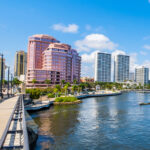The best time for traveling depends on various factors, such as your destination, personal preferences, budget, and the activities you wish to pursue.
Considering these factors can help you make the most of your trip and ensure a memorable experience. In this comprehensive guide, we will discuss how to determine the best time to travel by examining factors such as climate and weather, peak and off-peak seasons, events and festivals, and personal circumstances.
Climate and Weather
Weather plays a significant role in determining the best time to travel, as it can impact your overall experience, comfort, and the availability of activities. Here are some factors to consider when evaluating the weather at your chosen destination:
Temperature: Research the average temperatures during your planned travel period. Depending on your preferences, you may wish to avoid extreme heat or cold, or you may be seeking a specific climate, such as a winter wonderland or a tropical paradise.
Precipitation: Determine the likelihood of rain, snow, or other forms of precipitation during your travel dates. This can help you plan activities, pack appropriate clothing, and be prepared for any weather-related changes to your itinerary.
Seasonal variations: Be aware of seasonal weather patterns, such as monsoons, hurricanes, or typhoons, which can impact travel plans and safety.
Altitude and geography: Consider the effects of altitude and geography on the local climate. For example, mountainous regions can have cooler temperatures and more unpredictable weather, while coastal areas may be more humid and prone to storms.
Peak and Off-Peak Seasons
Travel demand can vary significantly throughout the year, leading to differences in pricing, crowds, and availability. Understanding peak and off-peak seasons can help you make informed decisions about when to travel.
Peak season: Peak season typically corresponds with the most desirable weather conditions, holidays, and school breaks. During this time, you can expect higher prices for flights, accommodations, and attractions, as well as larger crowds. If you choose to travel during peak season, book well in advance to secure the best deals and availability.
Shoulder season: The shoulder season falls between the peak and off-peak seasons. During this time, the weather is still generally favorable, but prices and crowds are lower. This can be an ideal time to travel for those seeking a balance between affordability and favorable conditions.
Off-peak season: Off-peak season is characterized by less desirable weather conditions, fewer tourists, and lower prices. While you may encounter less-than-perfect weather, you can also enjoy significant cost savings, fewer crowds, and a more authentic experience. Keep in mind that some attractions and activities may be closed or have limited availability during the off-peak season.
Events and Festivals
Events and festivals can greatly influence the best time to travel, offering unique experiences and opportunities to immerse yourself in local culture. Here are some factors to consider:
Cultural events and festivals: Research any significant cultural events or festivals taking place at your destination during your travel dates. These events can provide unforgettable experiences but may also result in higher prices and larger crowds. Plan and book early to secure accommodations and event tickets.
Sporting events: Major sporting events, such as the Olympics or World Cup, can draw large crowds and lead to higher prices and limited availability. If you are interested in attending a sporting event, plan and book well in advance.
Conferences and trade shows: Large conferences and trade shows can impact hotel availability and pricing in certain cities. Research any major events taking place at your destination to avoid unexpected challenges.
Personal Circumstances
Your personal circumstances, such as work commitments, budget, and travel preferences, can also play a significant role in determining the best time for traveling. Here are some factors to consider:
Work commitments: Depending on your profession, you may have more flexibility during certain times of the year, such as summer breaks for educators or off-seasons for seasonal workers. Consider your work schedule and commitments when planning your trip.
Budget: Your travel budget may dictate the best time to travel, as prices can vary widely throughout the year. Off-peak and shoulder seasons often offer more affordable options, while peak seasons may require higher budgets for accommodations, flights, and activities.
Travel preferences: Your personal travel preferences can help determine the best time for traveling. For example, if you prefer a more relaxed and quiet experience, you may want to avoid peak seasons and opt for off-peak or shoulder seasons. Conversely, if you enjoy the excitement and energy of popular destinations during peak season, you may be willing to pay higher prices and navigate larger crowds for that experience.
Travel companions: Consider the preferences and circumstances of your travel companions, such as their work schedules, budgets, and interests. Collaborate to find the best time for traveling that accommodates everyone’s needs and desires.
School and family schedules: For families with school-aged children, school breaks and holidays often dictate the best time for traveling. Coordinate your travel plans with your children’s school schedules and any other family commitments.
Conclusion
Determining the best time for traveling involves careful consideration of various factors, such as climate and weather, peak and off-peak seasons, events and festivals, and personal circumstances. By taking these factors into account, you can make informed decisions about when to plan your trip and maximize your enjoyment and satisfaction. Remember, there is no one-size-fits-all answer to the best time for traveling, and the ideal time for one person may not be the same for another. Ultimately, the best time for traveling is when you can fully embrace and appreciate the unique experiences and opportunities that your chosen destination has to offer.







